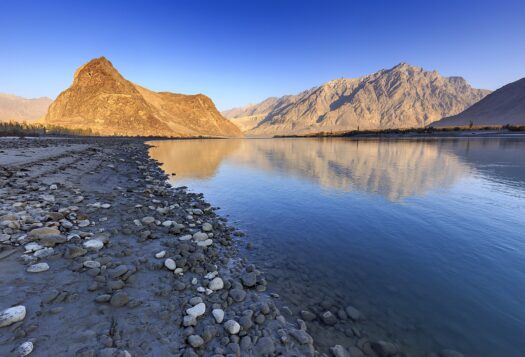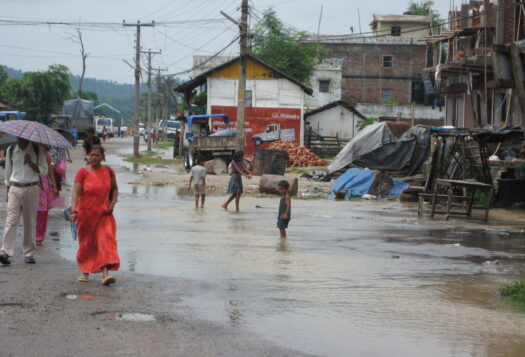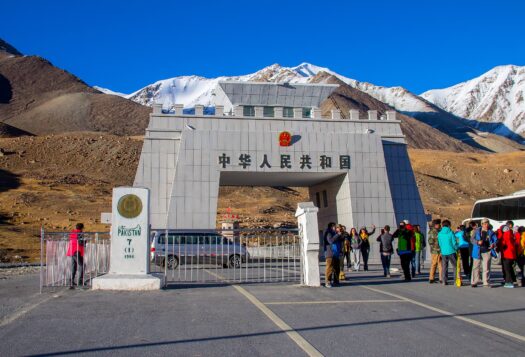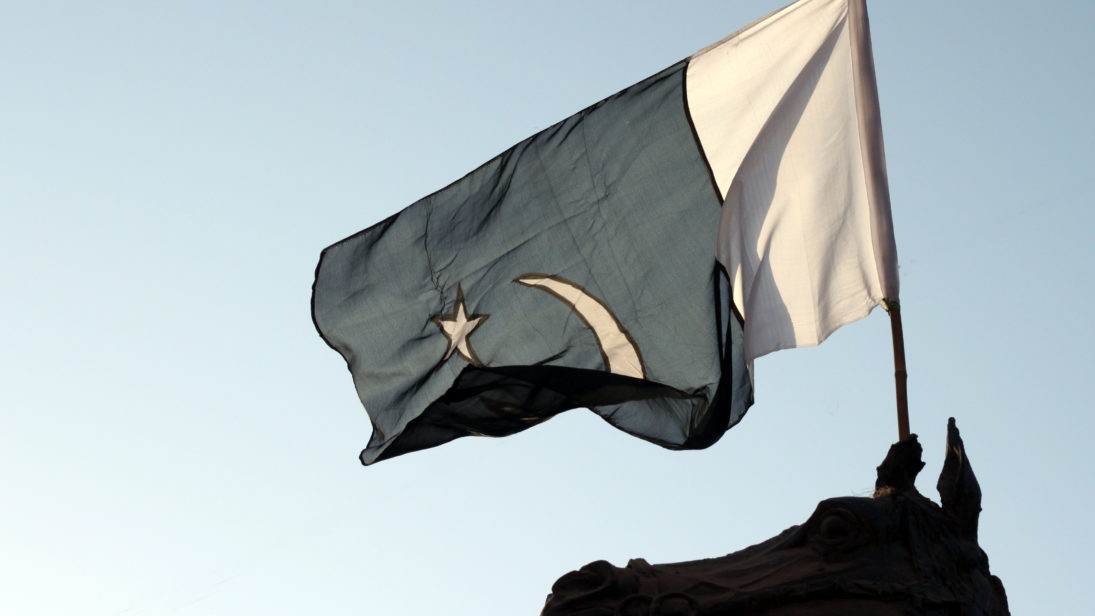
Pakistan’s foreign policy under Prime Minister Imran Khan has grown more proactive as Pakistan has responded directly to international trends. Diplomatically, Pakistan has become vocal about global issues such as climate change and Islamophobia. Its strong response to the latest crisis in Palestine is an extension of a larger diplomatic trend that seeks to enhance Pakistan’s soft power.
Along with diplomacy, the government has viewed tourism as a leading avenue for projecting Pakistan’s positive image globally. Be it the development of the Kartarpur Corridor, the creation of a dedicated tourism channel Discover Pakistan, or the politically supported and widely promoted inaugurations of tourist projects, the resources Pakistan invests in the tourism sector directly complement Pakistan’s soft power agenda.
While diplomacy and tourism have played a significant role in promoting an image of Pakistan as a peaceful and progressive country, the soft power benefits of diplomacy and tourism are short-term and limited. First, diplomacy—in encouraging rapprochement among actors with different ideological and moral leanings—can lead to self-contradictory stances over time. This can diminish, rather than enhance, a state’s soft power. For example, the United States’ moral support for democracy and its simultaneous political backing of dictators in the Middle East has served to erode U.S. soft power. Second, globalization has ushered in a trend of multi-destination tourism, prompting tourists to visit multiple countries in a single trip. Under such a trend, Pakistan is unlikely to gain a relative soft power advantage over other South Asian countries that boast similar topography and cultural landscapes.
Pakistan’s current approaches to soft power are suitable for damage control: diplomacy for its previous international isolation and tourism to improve its tarnished security image. To play a more assertive role on the world stage, Pakistan must recalibrate its soft power strategy and invest in more sustainable sectors such as media, education, and commerce.
Shaping Global Narratives through Media
Media holds an essential place in a state’s soft power toolkit. Outlets like BBC, CNN, and TRT have global footprints, attracting audiences towards their respective state’s political and cultural values. When it comes to entertainment, Hollywood has played a central role in enhancing the appeal of Americanism. Turkey has also recently attempted to export its culture internationally by translating and distributing dramas, such as Dirilis Ertugrul.
Redesigning the marketing strategy of PTV’s international English-language subsidiary PTV World could improve Pakistan’s international reach.
Despite possessing a well-established media sector, Pakistan’s media outlets do not attract global audiences, which diminishes Pakistan’s ability to share its perspectives with the world. Its electronic and print media primarily cover topics targeted at a domestic audience. Pakistan’s entertainment industry, although vibrant, has seldom generated content worthy of export. Even big-budget projects sponsored by the Inter-Services Public Relations (ISPR) wing of the Pakistan Armed Forces mostly focus on improving the military’s image within Pakistan rather than Pakistan’s image abroad.
Pakistan too can leverage its media industry to improve its soft power. The Pakistan Television (PTV)—Pakistan’s state network—may prove an asset for Pakistan’s efforts to internationalize domestic media. Despite being underequipped and underfunded, the channel has somewhat regained its appeal with the broadcast of Dirilis Ertugrul. The government can utilize this temporary boost by sponsoring entertainment projects focused on Pakistan’s cultural landscape, dubbing them into foreign languages, and distributing them through online streaming platforms, such as Netflix. Redesigning the marketing strategy of PTV’s international English-language subsidiary PTV World could improve Pakistan’s international reach. While its social media presence currently serves to merely promote its television news programs, it could be revamped as an information outlet, highlighting and analyzing relevant domestic and international events. PTV World can attract a global audience in the digital space by improving online graphics and posting digestible news videos regularly on its social media platforms.
Internationalization of Local Education Sector
Another soft power avenue that remains underutilized is Pakistan’s education sector. Student exchange programs are cost-effective and sustainable methods of developing a state’s soft power. Programs like Fulbright and Chevening attract students from around the world, acculturating them to their host country. Since these merit-based scholarships attract high-achieving, ambitious individuals, these students are likely to gain influential positions in their home countries and promote a positive outlook of their study-abroad host country.
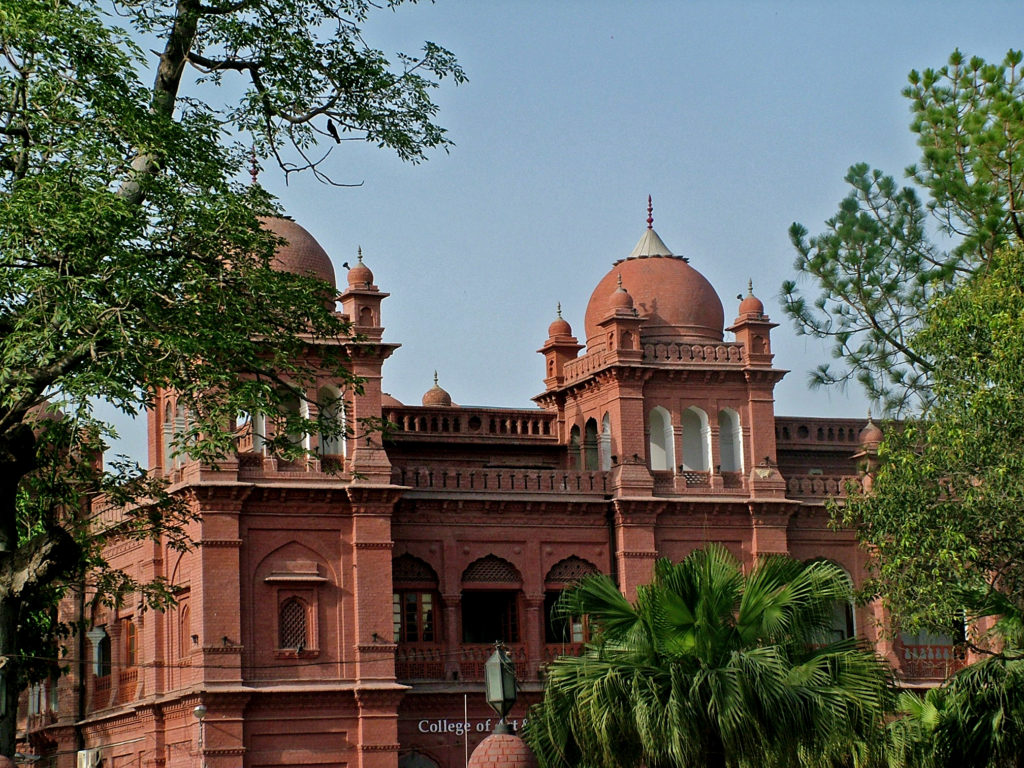
Pakistan currently trains cadets from South Asia and the Middle East in its military academies. Yet, gains from opening up its military academies to non-Pakistanis are small compared to the overall potential of Pakistan’s education sector. Presently, three Pakistani universities feature in the top 400 and ten in the top 1200 QS World Universities Ranking. While these statistics are not particularly impressive on their own, Pakistan’s education sector is a cut above other regional states like Tajikistan, Afghanistan, Iran, and Sri Lanka that collectively boast only eight universities in the top 1200 rankings. Pakistan could utilize these rankings to attract talent from strategically important states, introduce international students to positive aspects of Pakistani culture, and develop them as ambassadors of Pakistan in their home countries.
On this front, the Ministry of Foreign Affairs of Pakistan can collaborate with the Higher Education Commission to create Student Exchange and Leadership programs to attract youth from the developing world. Leveraging the ongoing South-South Cooperation initiative – a framework of collaboration among countries in the Global South – by promoting local university offerings could enhance the appeal of such programs. While Pakistan is bound to face competition from India, whose educational institutes rank comparatively better, Pakistan possesses a unique advantage. While India and Pakistan’s shared culture amalgamates elements from South Asia, Central Asia, and West Asia, Pakistan is a Muslim-majority country, and Urdu is written in the Arabic script. This may make it easier for students from many South, Central, and West Asian countries to adapt to Pakistan’s academic and social environments.
The Soft Power of Commerce
In the age of open markets, commerce naturally plays a crucial role in promoting a state’s image. The worldwide success of Apple and Huawei brands reflects positively on the United States and China respectively. Other countries have focused their efforts on entire industries – India on its Information Technology (IT) sector and Germany on its automobile industry.
In order to properly utilize the country’s commerce offerings, the government can provide incentives to exporters that develop products used globally and are eager to explore new destinations.
While Pakistan’s exports are rising, its export basket is not very diverse. Only a few of its products are truly global, and their destinations are primarily limited to the United States, China, and Europe. Local companies such as Gourmet and Shezan export products internationally but lack the branding to establish themselves as global household names. Pakistani factories that produce goods for renowned foreign brands improve the soft power leverage of the international investor, not the manufacturer.
In order to properly utilize the country’s commerce offerings, the government can provide incentives to exporters that develop products used globally and are eager to explore new destinations. Further, the Chamber of Commerce could arrange product marketing and branding workshops for export-oriented companies to help improve their international recognition. The country’s name would be linked with locally produced international products, improving Pakistan’s global soft power image.
Conclusion
Pakistan has begun to acknowledge the importance of investing in soft power tools. The ISPR’s reality TV show 60 Hours to Glory, the NUST Internship Program for International Students (NIPIS), and the dispute with India over the basmati rice label illustrate the country’s efforts in this regard.
Nonetheless, these recent initiatives are insufficient on their own. To fully leverage its soft power potential, Pakistan would need to overcome its traditional fixation on security and geopolitics, which restricts channels for pursuing national interests. Pakistan would also need to improve its press freedom reputation, which, in its current state, negatively affects its soft power image and outweighs the benefits of media internationalization. The government must also address brain drain and energy shortage problems, which adversely impact its education and commerce sectors.
Overall, Pakistan’s education, media, and commerce sectors provide ample opportunities to develop its soft power. It still has a long way to go before it properly harnesses the untapped potential of these soft power resources.
***
Click here to read this article in Urdu.
Image 1: Shahzeb Younas via Flickr
Image 2: Guilhem Vellut via Flickr
